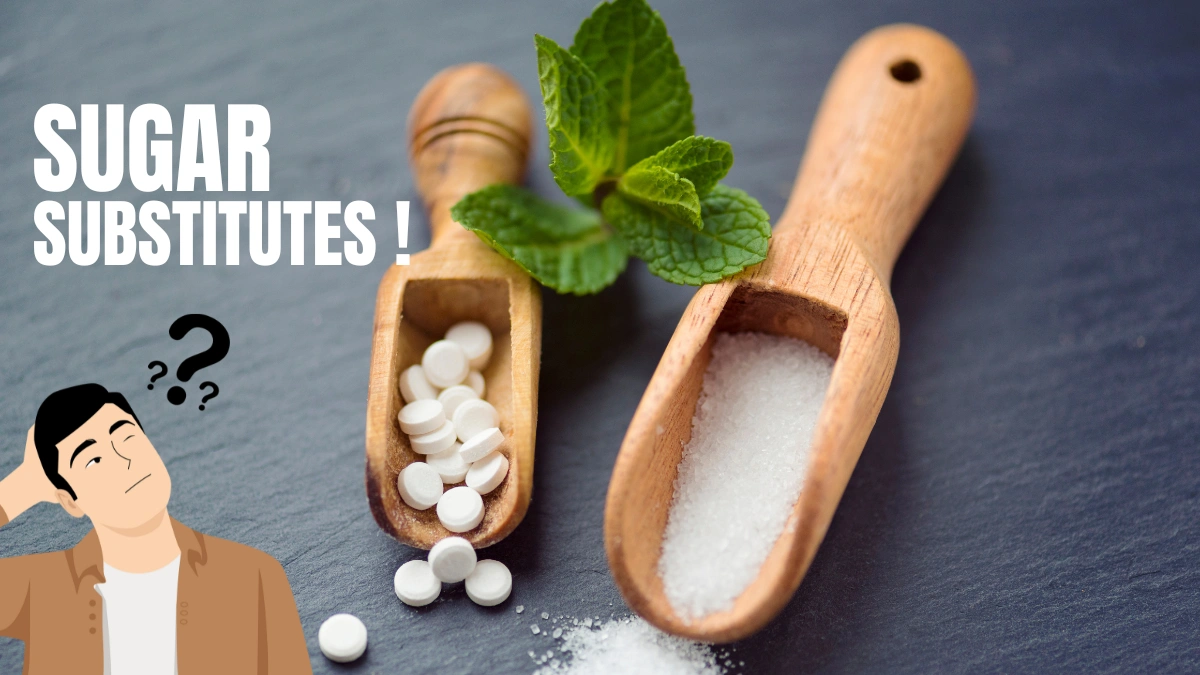Sugar Substitute is the red hot topic in health industry right now because everyone wants to know what are actually sugar substitutes, how they actually work and which one is the best form them . After reading this article I’m sure you will get all your answers about sugar substitutes and you will also get some additional knowledge as well. So let’s talk about sugar substitute in detail :
1. Sugar substitute
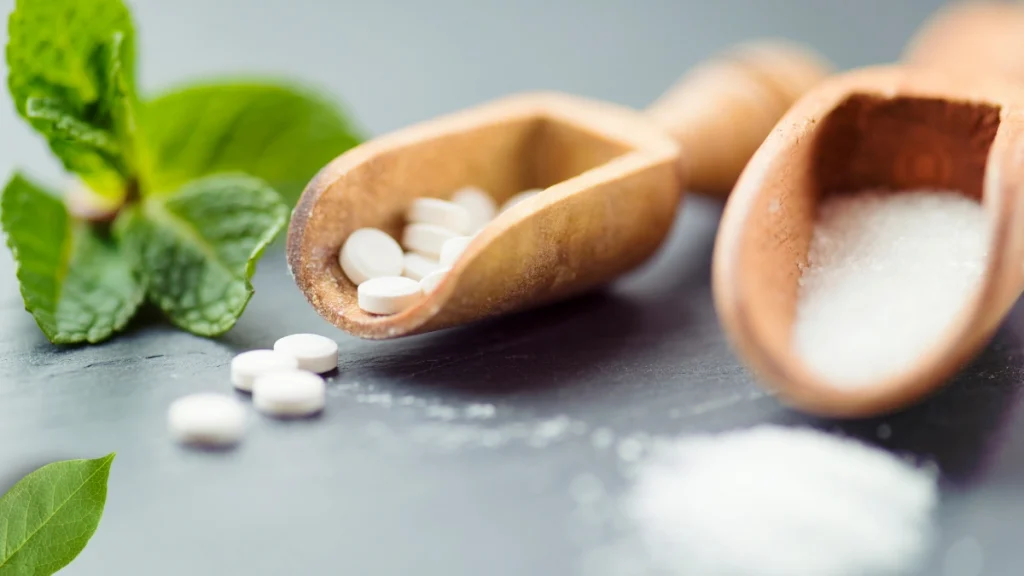
Sugar Substitutes are those substances which give a sweet flavor but do not act as refined sugar in our body. They generally have very low or no calories and it also does not increase your blood sugar level. Sugar Substitutes are popular among Diabetes, weight loss, and health conscious people.
2. Natural vs Artificial Sugar Substitutes
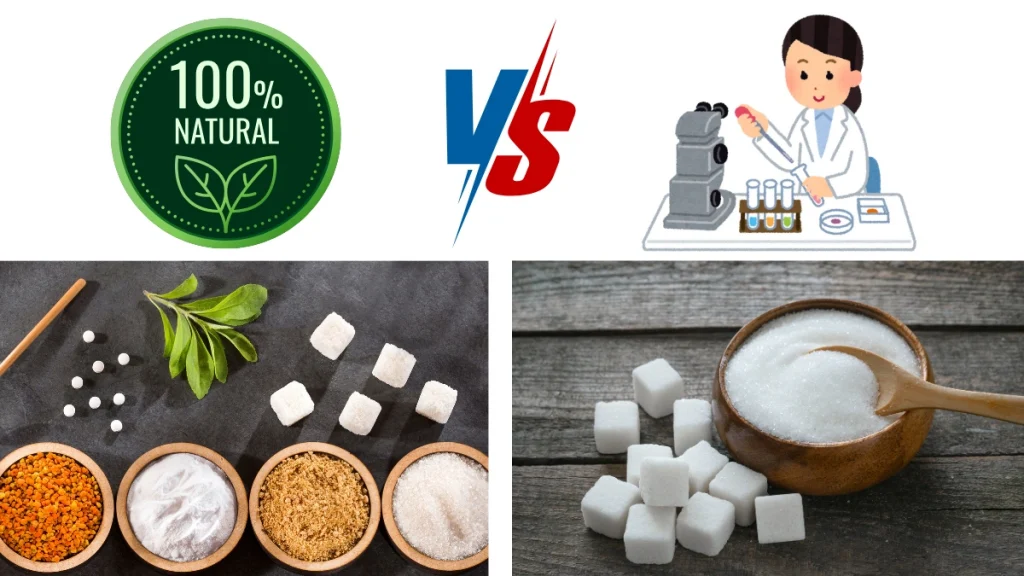
2.1 Natural Sugar Substitutes
These substitutes are made up from plants and other natural processes . It includes Honey, Jaggery, Maple Syrup, Dates, Coconut Syrup, Stevia, Fruit juice, Molasses, Figs, and Brown Rice Syrup.
1. Honey – Made up of juice of flowers contains vitamins and minerals.
2. Jaggery – Made up of sugarcane juice and gives iron and minerals.
3. Maple Syrup – It is extracted from the bark of the maple tree and filled with antioxidants.
4. Dates – It is a fruit loaded with fiber and other essential nutrients.
5. Coconut Syrup – Made up of coconut trees it is filled with vitamins, minerals.
6. Fruit juices – Juices like Apple juice, or grape juice gives you natural sweetness.
7. Molasses – Made up of Sugarcane juice and loaded with iron and calcium.
8. Figs – It is a fruit loaded with vitamins, minerals, and fiber.
9. Brown Rice Syrup – Made up of brown rice and it is gluten free.
Natural sweeteners are high in nutrition content but they contain calories. Over consumption of these sweeteners may lead to weight gain and people with diabetes should consult their respective doctors or nutritionist before having these substitutes.
2.2 Artificial Sugar Substitutes
Artificial Sugar Substitutes are made in labs. They have very low or no calories. They also do not spike your blood glucose levels, which helps in weight loss and in diabetes. They generally are sweeter than sugar. Examples of Artificial sweeteners are Aspartame, Saccharin, Sucralose, Acesulfame Potassium (Ace-K), Neotame, Advantame, and Cyclamate.
1. Aspartame – It is low in calories and it is 200 times sweeter than sugar.
2. Saccharin – It has zero calories in it and it is 300 to 400 times sweeter than sugar.
3. Sucralose – It has zero calories and it is 600 times sweeter than sugar
4. Acesulfame Potassium (Ace-K) – It has zero calories and it is 200 times sweeter than sugar.
5. Neotame – It has zero calories and it is 7000 to 13000 times sweeter than sugar
6. Advantame – It has zero calories and it is the sweetest substitute. It is 20,000 times sweeter than sugar.
7. Cyclamate – It has zero calories and it is 30 to 50 times sweeter than sugar.
8. Allulose – It is a rare sugar made up of fruits like figs, Jackfruit, and raisins. It is one of the expensive ones. It is Low in calories and 70% sweeter than sugar and
Artificial Sugar Substitutes are calorie free suitable for weight loss and diabetes. It controls your blood sugar levels. Also, it won’t cost you any dental health issues like sugar. But they lack nutrients. Over consumption of artificial sweeteners may cause digestive issues. Consult your doctor if you have diabetes or any other health issue.
3. Sugar Alcohols: A Middle Ground
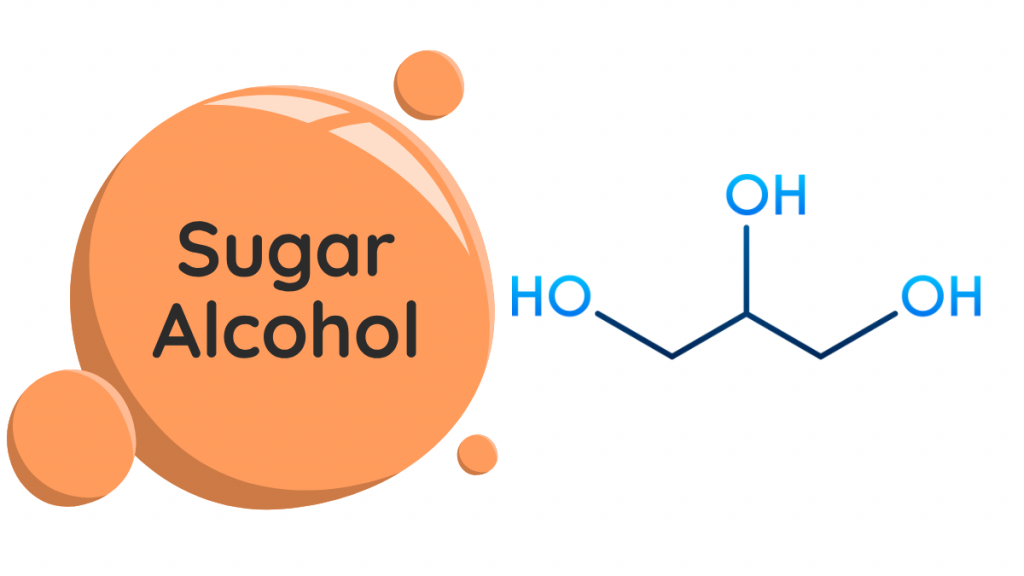
Sugar Alcohols are neither sugars nor alcohols but their chemical structure partially looks like sugar and alcohol. They do not cause intoxication like alcohol. They used in making sugar free or low calorie products like chewing gum, toothpaste, protein bars, diabetic sweets, and baked foods।
Some benefits of sugar alcohols are that they are low in calories, do not spike the blood sugar level and it does not cause any harm to teeth. It absorbs very slowly in our bloodstream.
3.1 Some common sugar alcohols are :
1. Erythritol – It is 70% sweeter than sugar and gives 0.2 calories per gram, it is very light and the best gut health.
2. Xylitol – It is 100% sweeter than sugar, it gives 2.4 calories per gram, and it is best for the teeth but over consumption of xylitol may cause a laxative effect.
3. Sorbitol – It is 60% sweeter than sugar, it gives 2.6 calories per gram and it is mostly used in sugar free candies
4. Maltitol – It is 90% sweeter than sugar , it gives 2.1 calories per gram and its taste and texture completely matches with sugar.
4. How to Choose the Right Sugar Substitute?

Everyone in this world is different, everyone has their own taste preferences, health needs, medical conditions, etc. that’s why choosing the right sugar substitutes totally depends on the individual.
4.1 Based on Health Goals
4.1.1 Weight Loss –
Monk Fruit | Stevia | Erythritol
These 3 sugar substitutes give you zero calories , these sugar substitutes also do not trigger your insulin spike through which fat is not stored in the body. These sweeteners are too sweet so they do not trigger your sweet craving. These sugar substitutes are ideal choices for a low carb diet as they have no net carbs.
4.1.2. Clean Eating
Coconut Sugar | Raw Honey | Dates
These sugar substitutes are best for clean eating. These are natural Sugar Substitutes extracted from plant sources that provide you essential minerals like magnesium, potassium and iron. Raw honey is a good source of antioxidants. Dates are rich in fiber. Use these sugar substitutes in moderation as they contain calories not ideal for weight loss.
4.1.3 Muscle gain
Maple syrup – is a natural sugar substitute that provides you with simple carbs which quickly digest in your body. If you take it before workout it fills up your glycogen level which helps in faster muscle recovery and also reduces fatigue.
Raw Honey
Honey is also a natural sugar substitute. Honey has a blend of glucose and fructose which gives you a quick energy. Honey also has anti-inflammatory properties which helps to reduce muscle soreness. If you take it as a pre workout it gives you instant energy and if you have it in post work out try to add it with your protein shake it will help you to restore your glycogen levels.
4.2 Based on Taste and Cooking Needs
4.2.1 Baking (cakes, cookies)
Erythritol | Xylitol | Allulose
These sugar substitutes are as sweet as sugar gives you almost zero calorie. These sugar substitutes have zero impact on your glycemic index. These sugar substitutes help maintain a soft and moist texture in cakes and cookies. Gives a slight brown texture as well as a chewy texture to your cakes and cookies.
4.2.2 Beverages (tea, coffee)
Stevia drops | Monk Fruit | Sucralose
These sugar substitutes are the best for beverages as they mix quickly, very less quantity is required to get the sweet taste. These sugar substitutes are heat stable and do not give you any aftertaste .
4.2.3 Cooking (sauces, gravies)
Maple Syrup | Honey| Coconut Sugar
These are natural sugar substitutes , they do not get damaged by heat . Additionally they improve the color, texture and flavor of the dish. These sugar substitutes are also rich in antioxidants and trace minerals.
4.2.4 Chewing gums/toothpaste
Xylitol it’s a natural sugar alcohol , it is as sweet as sugar, its glycemic index is too low and it is also tooth friendly because when we consume xylitol, bacteria on our teeth absorb it thinking it is a sugar but did not digest it result bacteria gets died and becomes in active and the acid production also gets stop results in no tooth decay.
4.3 Based on Medical Conditions (like diabetes, IBS)
4.3.1 Diabetes
Stevia | Monk Fruit | Erythritol
These three sugar substitutes have zero glycemic index which means they do not trigger your blood sugar spike , they zero calories which helps in weight control . Avoid Honey, Maple Syrup, Coconut Sugar as these sugar substitutes contain calories which leads to blood sugar spike. The glycemic index of these sugar substitutes are also on the higher sides.
4.3.2 IBS (Irritable Bowel Syndrome / Sensitive Gut)
Stevia | Monk Fruit
These two sugar substitutes are non-fermentable which means after going in the gut they do not cause any gas, bloating, and discomfort. Avoid Sorbitol, Xylitol, Maltitol these substitutes get fermented in the gut which cause bloating, gas and discomfort in the gut.
4.3.3 PCOS (Polycystic Ovary Syndrome)
Stevia | Erythritol
In PCOS insulin resistance is common so we need these sugar substitutes who do not increase the blood sugar level. Stevia and Erythritol are low glycemic and provide you with zero calories . Stevia and Erythritol are good IN PCOS. Avoid sugar substitutes like coconut sugar, jaggery, honey in the case of PCOS as they have a high glycemic index . These sweeteners can spike your blood sugar level and these sugar substitutes can worsen your hormonal imbalance.
5. Common Myths and Facts About Sugar Substitutes
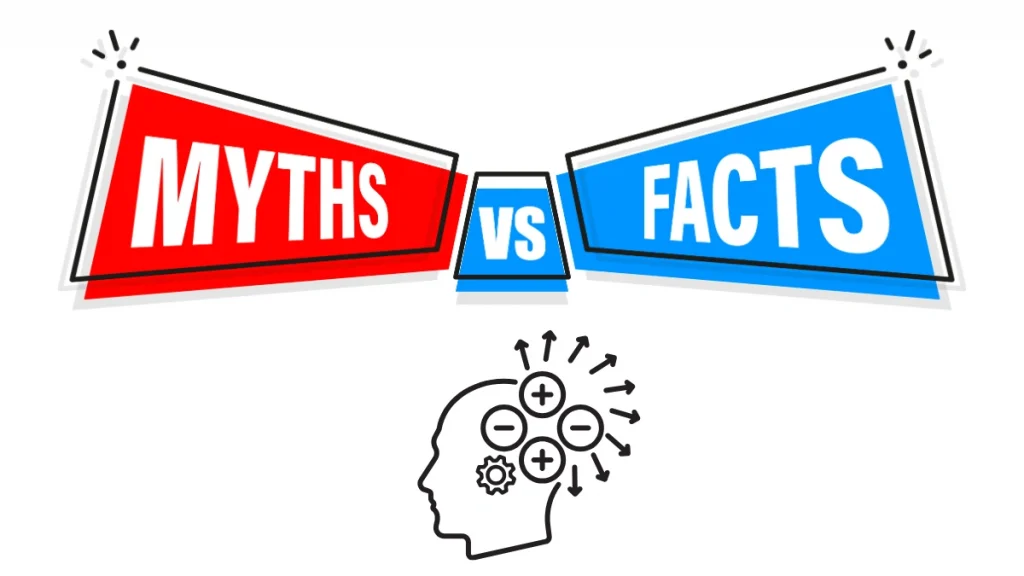
Myth 1: Artificial sweeteners cause cancer
Fact:
According to the FDA, EFSA, and the National Cancer Institute (NCI), approved artificial sweeteners like aspartame, sucralose, and saccharin do not cause cancer when consumed within acceptable daily intake limits.
These sweeteners are rigorously tested and considered safe.
Source: National Cancer Institute
Myth 2: Artificial sweeteners are bad for your teeth
Fact:
Some sugar alcohols like xylitol are actually beneficial for dental health.
Xylitol reduces bacteria in the mouth, prevents tooth decay, and helps maintain oral pH balance.
Source: Mayo Clinic
Myth 3 : All sugar substitutes have no side effects
Most are safe, but certain ones like neotame or excess sugar alcohols may cause bloating or gut irritation.
Source : Harvard Health
Myth 4 : You must avoid all sweeteners for a healthy lifestyle.
Not true! Smart use of the right sweeteners can help manage sugar intake and support balanced eating.
Source : National Health Service (NHS)
Conclusion:
Now after reading this blog you got to know about What actually sugar substitutes are and how they work in our body. You also got to know about different types of sugar substitutes which are natural , artificial and sugar alcohols. Then you gained knowledge about which type of sugar substitutes is best for you . At last you went through some myths and facts about sugar substitutes. I hope this article helps you to understand sugar substitutes better.
